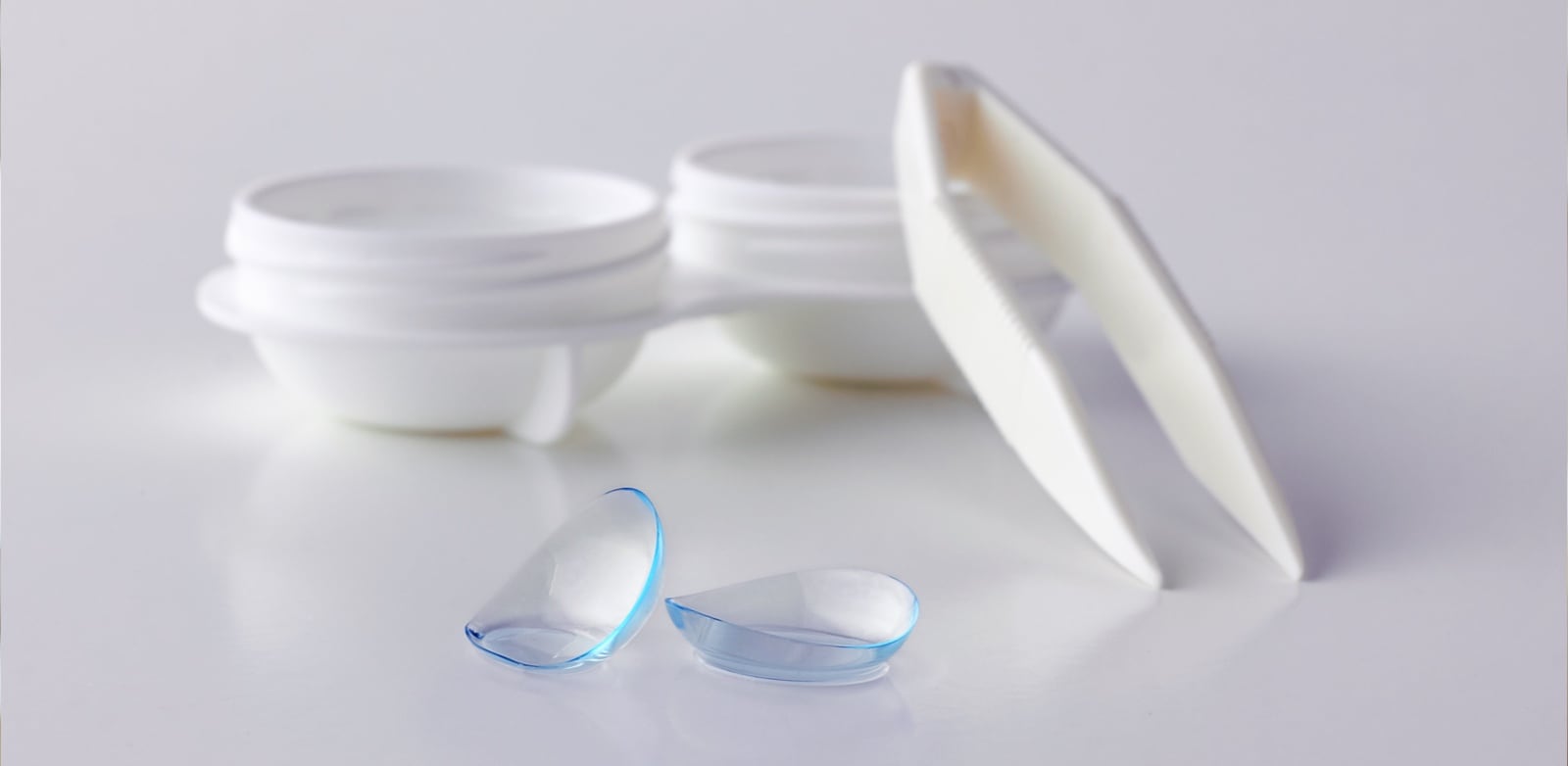Hard contact lenses vs soft pro & cons

While soft contact lenses have become increasingly popular in recent years, some people still prefer hard contact lenses. But what are the differences between hard contact lenses vs soft? The material composition isn’t the only difference between the two contact lenses types:
What are hard contact lenses (or gas permeable)?
Hard contact lenses get their name from the rigid plastic materials that they are made out of and which give them their hard feel. These lenses, sometimes referred to as PMMA lenses because of the specific type of material they are made out of, are designed out of breathable, hard plastic materials so that they maintain their shape when on the surface of the eye. Gas Permeable Lenses (GP lenses) are a type of hard contact lens that are made out of a breathable plastic that provides greater comfort for the wearer and greater oxygen permeability.
Nowadays, these types of lenses are typically prescribed to people in need of more complex vision correction, either due to the severity of their astigmatism or for those who require more precise vision.
Due to their shape retention, these types of lenses must be specifically fitted to the individual wearer, making them generally more expensive than soft contact lenses. However, because of their rigidity, they are able to provide excellent vision correction and are quite durable, allowing the wearer to be used for greater periods of time before they need to be exchanged for a fresh pair of lenses, unlike soft contacts which come in daily, biweekly or monthly disposable lenses.
What are soft contact lenses?
Nowadays, the bulk of the market of contacts online are soft contact lenses. Soft lenses get their name from the water-absorbent plastics, called hydrogels, from which they are made, since these plastics allow for increased flexibility and conformity to the surface of the eye, giving them a softer feel when in use compared to hard contacts.
Their flexibility makes them much more comfortable to wear in comparison to hard contacts. The water permeability of the soft contact lenses also allows for great oxygen flow to the cornea, another contributing factor to their superior comfort.
Hard contact lenses vs soft
Typically, patients tend to prefer soft contact lenses over hard contact lenses, because they require much less time to get used to than hard contacts, and generally require a less extensive care routine.
Hard contact lenses, because of their rigid shape, tend to be more susceptible to scratches and need to be well taken care of in order to get the best possible use out of them. They also require more time for the wearer to get accustomed to the feel of the lenses. Because of this, these lenses must be worn with greater consistency, to stay accustomed to them. In general, GP lenses are also smaller in diameter than soft contacts, and so they are more likely to fall out when worn during strenuous activity.
Your OD will be able to help you find what kind of contact lens is best for you, depending on your specific needs and prescription. Once you have decided what type of lens is right for you, you can order contacts online with insurance hassle-free, and have them shipped right to your door.


